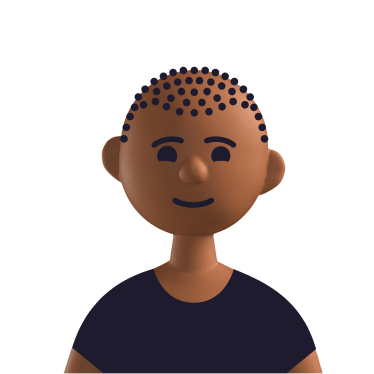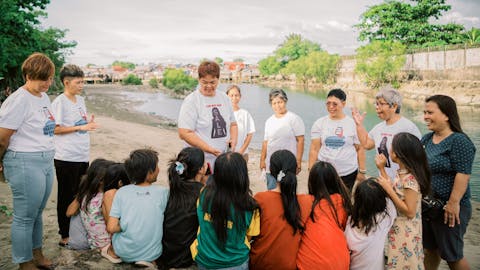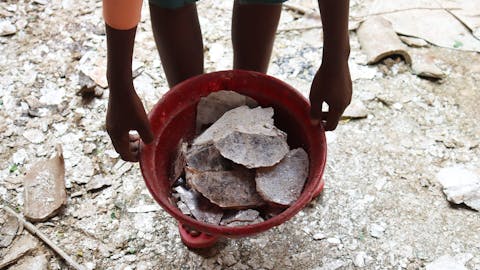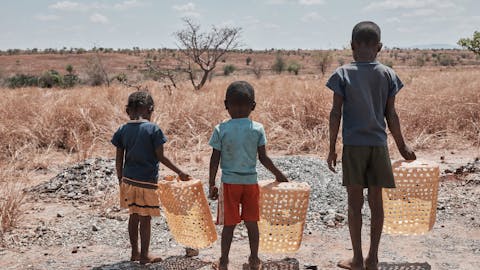

Ending child labour
We are committed for better conditions to build a better life
We are committed against child labour. Join us and stop child labour.

Child labour
Child labour means that children under the legal minimum age for employment work.
Nearly 138 million children work worldwide. Close to 40% of them are engaged in hazardous work. This needs to stop.
Child labour occurs everywhere, but the nature of the work can vary. Such as hard work in mines, factories or the clothing industry. But children are also work as street vendors, beggars, as domestic labour in the household or they are forced to work in prostitution or as child soldiers.
Let’s speed up efforts. It’s time to listen to children.

Children’s voices matter in the fight against child labour. Our latest series of stories ‘Let’s Speed Up Efforts’ in collaboration with the International Labour Organization (ILO), created, narrated and illustrated by children from Southeast Asia present what child labour means to them.
Through this upcoming series, we speak up for a child-centered approach to tackle child labour and its worst forms.
It begins with listening to children. It’s time to start now.
Follow us on Facebook and LinkedIn to tune into this series.
Visit the ILO website for latest updates on the progress in the efforts against child labour.

New Global Estimates on Child Labour released by ILO and UNICEF show progress: child labour has decreased by over 22 million since 2020. In Asia and the Pacific, the rate was nearly halved—dropping from 5.6% to 3.1%. This represents the fastest progress of any region, with a 43% reduction in absolute numbers. Still, 138 million children globally—including 54 million in hazardous work—remain deprived of their right to learn, play, and grow.
Progress is clear, but there’s more to do: let’s speed up efforts!

Our work
What we do to end child labor
Solving child labor starts at the core: breaking the vicious circle. That is why we invest in education. Through education, children develop and increase their chances of a better future.
We hold companies and governments accountable for their responsibilities. They must ensure safety and good care for children. We help parents earn a better income and ensure that working children go to school. This will stop the dependency on their children’s work and break the vicious circle of poverty.
-

Messi (16)
Benato, MadagascarIt was difficult but there was nothing else I could do, my parents needed me. My situation has gotten better now; there are no worries in going to school as I have school supplies and I can eat breakfast at home and lunch at school. My mother doesn’t have to worry about lunch now and focuses more on growing greens.











